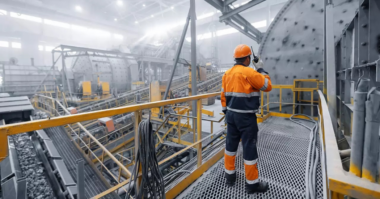In a letter to the U.S. Senate Committee on Environment and Public Works yesterday, the American Water Works Association commended elected leaders for their work on legislation to assist with the cleanup of abandoned mines and put forth 10 principles that should be included in any final law.
The so-called “Good Samaritan” legislation would help address more than 500,000 abandoned hard rock mines throughout the American West, providing potential Good Samaritans with incentives to get involved in the cleanup. In the East, pollution from abandoned coal mines is damaging more than 10,000 miles of streams and rivers just in Pennsylvania and West Virginia. The cost of cleanup in Pennsylvania alone has been estimated at $15 billion.
“AWWA believes that the draft legislation being considered by the committee is a good first step in the effort to maximize the number of orphaned mine sites that receive remediation, while also ensuring the greatest environmental benefit from each mine remediation,” the letter states.
The letter notes that all but two of AWWA’s principles are in some way reflected in draft legislation. Missing are a) a requirement of public notification of all Good Samaritan projects from application to completion and b) a requirement that Good Samaritans notify downstream utilities of the actions they plan to take as part of each approved remediation plan.
AWWA’s principles for Good Samaritan legislation include:
- Provide strict definition for “abandoned mine.”
- Maintain existing liability for polluters.
- Identify and define Good Samaritans.
- Identify and define existing owners and operators of abandoned mines.
- Maintain liability of polluters even in cases of actions taken by Good Samaritans.
- Expedite the approval process for Good Samaritan permitting.
- Include language that all remediation plans must yield a net environmental benefit to relevant waters, and do no harm to existing environment.
- Include language that all Good Samaritans must notify downstream utilities of actions planned and a allow utility to prepare for or mitigate any potential consequences of such actions on drinking water, and to ensure monitoring after completion of remediation plan.
- Include language that requires an EPA report to Congress and creation of online database of Good Samaritan projects.
- Include a “Sunset Clause.”




